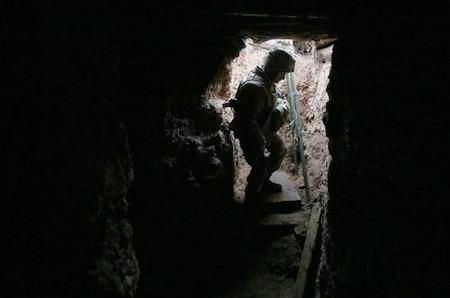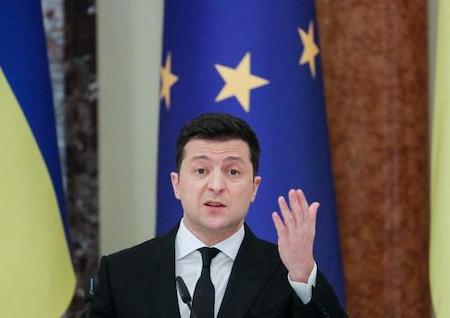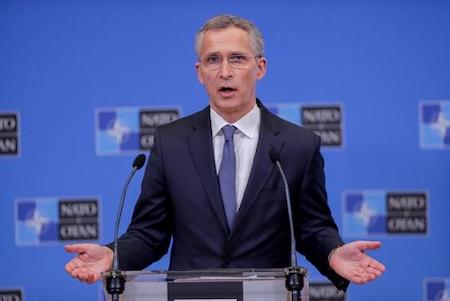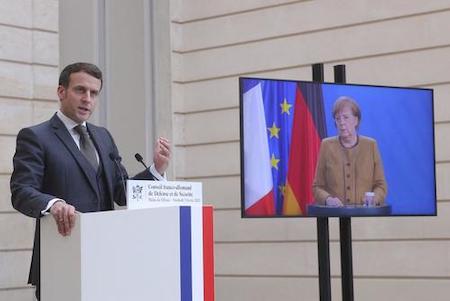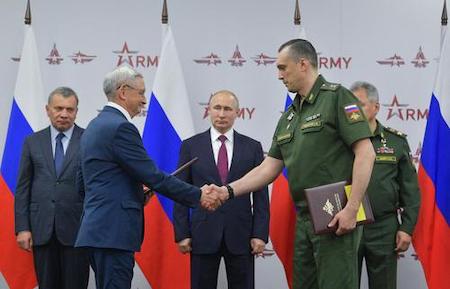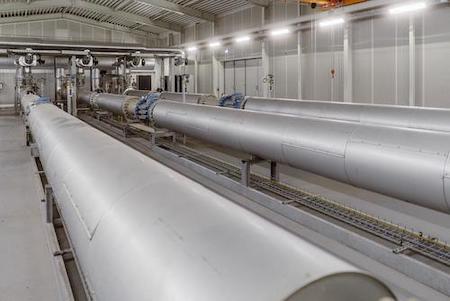The Deep State/Nato combo's using Kiev to start a war to bury Nord Stream 2 and German-Russian relations
Ukraine and Russia may be on the brink of war – with dire consequences for the whole of Eurasia. Let’s cut to the chase, and plunge head-on into the fog of war. On March 24, Ukrainian President Zelensky, for all practical purposes, signed a declaration of war against Russia, via decree No. 117/2021.
The decree establishes that retaking Crimea from Russia is now Kiev’s official policy. That’s exactly what prompted an array of Ukrainian battle tanks to be shipped east on flatbed rail cars, following the saturation of the Ukrainian army by the US with military equipment including unmanned aerial vehicles, electronic warfare systems, anti-tank systems and man-portable air defense systems (MANPADS). More crucially, the Zelensky decree is the proof any subsequent war will have been prompted by Kiev, debunking the proverbial claims of “Russian aggression.” Crimea, since the referendum of March 2014, is part of the Russian Federation. It was this (italics mine) de facto declaration of war, which Moscow took very seriously, that prompted the deployment of extra Russian forces to Crimea and closer to the Russian border with Donbass. Significantly, these include the crack 76th Guards Air Assault Brigade, known as the Pskov paratroopers and, according to an intel report quoted to me, capable of taking Ukraine in only six hours. It certainly does not help that in early April US Secretary of Defense Lloyd Austin, fresh from his former position as a board member of missile manufacturer Raytheon, called Zelensky to promise “unwavering US support for Ukraine’s sovereignty.” That ties in with Moscow’s interpretation that Zelensky would never have signed his decree without a green light from Washington.
Controlling the Narrative Sevastopol, already when I visited in December 2018, is one of the most heavily defended places on the planet, impervious even to a NATO attack. In his decree, Zelensky specifically identifies Sevastopol as a prime target. Once again, we’re back to 2014 post-Maidan unfinished business. To contain Russia, the US deep state/NATO combo needs to control the Black Sea – which, for all practical purposes, is now a Russian lake. And to control the Black Sea, they need to “neutralize” Crimea. If any extra proof was necessary, it was provided by Zelensky himself on Tuesday this week in a phone call with NATO secretary-general and docile puppet Jens Stoltenberg.
Zelensky uttered the key phrase: “NATO is the only way to end the war in Donbass” – which means, in practice, NATO expanding its “presence” in the Black Sea. “Such a permanent presence should be a powerful deterrent to Russia, which continues the large-scale militarization of the region and hinders merchant shipping.” All of these crucial developments are and will continue to be invisible to global public opinion when it comes to the predominant, hegemon-controlled narrative. The deep state/NATO combo is imprinting 24/7 that whatever happens next is due to “Russian aggression.” Even if the Ukrainian Armed Forces (UAF) launch a blitzkrieg against the Lugansk and Donetsk People’s Republics. (To do so against Sevastopol in Crimea would be certified mass suicide). In the United States, Ron Paul has been one of the very few voices to state the obvious: “According to the media branch of the US military-industrial-congressional-media complex, Russian troop movements are not a response to clear threats from a neighbor, but instead are just more ‘Russian aggression.’”What’s implied is that Washington/Brussels don’t have a clear tactical, much less strategic game plan: only total narrative control. And that is fueled by rabid Russophobia – masterfully deconstructed by the indispensable Andrei Martyanov, one of the world’s top military analysts. A possibly hopeful sign is that on March 31, the chief of the General Staff of the Russian Armed Forces, General Valery Gerasimov, and the chairman of the Joint Chiefs of Staff, General Mark Milley, talked on the phone about the proverbial “issues of mutual interest.” Days later, a Franco-German statement came out, calling on “all parties” to de-escalate. Merkel and Macron seem to have gotten the message in their videoconference with Putin – who must have subtly alluded to the effect generated by Kalibrs, Kinzhals and assorted hypersonic weapons if the going gets tough and the Europeans sanction a Kiev blitzkrieg.
The problem is Merkel and Macron don’t control NATO. Yet Merkel and Macron at least are fully aware that if the US/NATO combo attacks Russian forces or Russian passport holders who live in Donbass, the devastating response will target the command centers that coordinated the attacks. What Does the Hegemon Want? As part of his current Energizer bunny act, Zelensky made an extra eyebrow-raising move. This past Monday, he visited Qatar with a lofty delegation and clinched a raft of deals, not circumscribed to LNG but also including direct Kiev-Doha flights; Doha leasing or buying a Black Sea port; and strong “defense/military ties” – which could be a lovely euphemism for a possible transfer of jihadis from Libya and Syria to fight Russian infidels in Donbass. Right on cue, Zelensly meets Turkey’s Erdogan next Monday. Erdogan’s intel services run the jihadi proxies in Idlib, and dodgy Qatari funds are still part of the picture. Arguably, the Turks are already transferring those “moderate rebels” to Ukraine. Russian intel is meticulously monitoring all this activity. A series of informed discussions – see, for instance, here and here – is converging on what may be the top three targets for the hegemon amid all this mess, short of war: to provoke an irreparable fissure between Russia and the EU, under NATO auspices; to crash the Nord Steam 2 pipeline; and to boost profits in the weapons business for the military-industral complex. So the key question then is whether Moscow would be able to apply a Sun Tzu move short of being lured into a hot war in the Donbass. On the ground, the outlook is grim. Denis Pushilin, one of the top leaders of the Lugansk and Donetsk people’s republics, has stated that the chances of avoiding war are “extremely small.” Serbian sniper Dejan Beric – whom I met in Donetsk in 2015 and who is a certified expert on the ground – expects a Kiev attack in early May. The extremely controversial Igor Strelkov, who may be termed an exponent of “orthodox socialism,” a sharp critic of the Kremlin’s policies who is one of the very few warlords who survived after 2014, has unequivocally stated that the only chance for peace is for the Russian army to control Ukrainian territory at least up to the Dnieper river. He stresses that a war in April is “very likely”; for Russia war “now” is better than war later; and there’s a 99% possibility that Washington will not fight for Ukraine. On this last item at least Strelkov has a point; Washington and NATO want a war fought to the last Ukrainian. Rostislav Ischenko, the top Russian analyst of Ukraine whom I had the pleasure of meeting in Moscow in late 2018, persuasively argues that, “the overall diplomatic, military, political, financial and economic situation powerfully requires the Kiev authorities to intensify combat operations in Donbass. “By the way,” Ischenko added, “the Americans do not give a damn whether Ukraine will hold out for any time or whether it will be blown to pieces in an instant. They believe they stand to gain from either outcome.” Gotta Defend Europe Let’s assume the worst in Donbass. Kiev launches its blitzkrieg. Russian intel documents everything. Moscow instantly announces it is using the full authority conferred by the UNSC to enforce the Minsk 2 ceasefire. In what would be a matter of 8 hours or a maximum 48 hours, Russian forces smash the whole blitzkrieg apparatus to smithereens and send the Ukrainians back to their sandbox, which is approximately 75km north of the established contact zone. In the Black Sea, incidentally, there’s no contact zone. This means Russia may send out all its advanced subs plus the surface fleet anywhere around the “Russian lake”: They are already deployed anyway.
Once again Martyanov lays down the law when he predicts, referring to a group of Russian missiles developed by the Novator Design Bureau: “Crushing Ukies’ command and control system is a matter of few hours, be that near border or in the operational and strategic Uki depth. Basically speaking, the whole of the Ukrainian ‘navy’ is worth less than the salvo of 3M54 or 3M14 which will be required to sink it. I think couple of Tarantuls will be enough to finish it off in or near Odessa and then give Kiev, especially its government district, a taste of modern stand-off weapons.” The absolutely key issue, which cannot be emphasized enough, is that Russia will not (italics mine) “invade” Ukraine. It doesn’t need to, and it doesn’t want to. What Moscow will do for sure is to support the Novorossiya people’s republics with equipment, intel, electronic warfare, control of airspace and special forces. Even a no-fly zone will not be necessary; the “message” will be clear that were a NATO fighter jet to show up near the frontline, it would be summarily shot down. And that brings us to the open “secret” whispered only in informal dinners in Brussels, and chancelleries across Eurasia: NATO puppets do not have the balls to get into an open conflict with Russia. One thing is to have yapping dogs like Poland, Romania, the Baltic gang and Ukraine amplified by corporate media on their “Russian aggression” script. Factually, NATO had its collective behind unceremoniously kicked in Afghanistan. It shivered when it had to fight the Serbs in the late 1990s. And in the 2010s, it did not dare fight the Damascus and Axis of Resistance forces. When all fails, myth prevails. Enter the US Army occupying parts of Europe to “defend” it against – who else? – those pesky Russians. That’s the rationale behind the annual US Army DEFENDER-Europe 21, now on till the end of June, mobilizing 28,000 soldiers from the US and 25 NATO allies and “partners.” This month, men and heavy equipment pre-positioned in three US Army depots in Italy, Germany and the Netherlands will be transferred to multiple “training areas” in 12 countries. Oh, the joys of travel, no lockdown in an open air exercise since everyone has been fully vaccinated against Covid-19. Pipelineistan Uber Alles Nord Stream 2 is not a big deal for Moscow; it’s a Pipelineistan inconvenience at best. After all the Russian economy did not make a single ruble out of the not yet existent pipeline during the 2010s – and still it did fine. If NS2 is canceled, there are plans on the table to redirect the bulk of Russian gas shipments towards Eurasia, especially China.
In parallel, Berlin knows very well that canceling NS2 will be an extremely serious breach of contract – involving hundreds of billions of euros; it was Germany that requested the pipeline to be built in the first place. Germany’s energiewende (“energy transition” policy) has been a disaster. German industrialists know very well that natural gas is the only alternative to nuclear energy. They are not exactly fond of Berlin becoming a mere hostage, condemned to buy ridiculously expensive shale gas from the hegemon – even assuming the egemon will be able to deliver, as its fracking industry is in shambles. Merkel explaining to German public opinion why they must revert to using coal or buy shale from the US will be a sight to see. As it stands, NATO provocations against NS2 proceed unabated – via warships and helicopters. NS2 needed a permit to work in Danish waters, and it was granted only a month ago. Even as Russian ships are not as fast in laying pipes as the previous ships from Swiss-based Allseas, which backed down, intimidated by US sanctions, the Russian Fortuna is making steady progress, as noted by analyst Petri Krohn: one kilometer a day on its best days, at least 800 meters a day. With 35 km left, that should not take more than 50 days. Conversations with German analysts reveal a fascinating shadowplay on the energy front between Berlin and Moscow – not to mention Beijing. Compare it with Washington: EU diplomats complain there’s absolutely no one to negotiate with regarding NS2. And even assuming there would be some sort of deal, Berlin is inclined to admit Putin’s judgment is correct: the Americans are “not agreement-capable.” One just needs to look at the record. Behind the fog of war, though, a clear scenario emerges: the deep state/NATO combo using Kiev to start a war as a Hail Mary pass to ultimately bury NS2, and thus German-Russian relations. At the same time, the situation is evolving towards a possible new alignment in the heart of the “West”: US/UK pitted against Germany/France. Some Anglosphere exceptionals are certainly more Russophobic than others. The toxic encounter between Russophobia and Pipelineistan will not be over even if NS2 is completed. There will be more sanctions. There will be an attempt to exclude Russia from SWIFT. The proxy war in Syria will intensify. The hegemon will go no holds barred to keep creating all sorts of geopolitical harassment against Russia. What a nice wag-the-dog op to distract domestic public opinion from massive money printing masking a looming economic collapse. As the empire crumbles, the narrative is set in stone: it’s all the fault of “Russian aggression.” Source URL |
